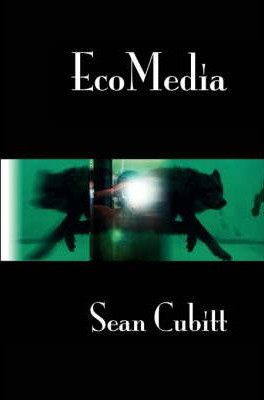Art Silverblatt: Genre Studies in Mass Media: A Handbook (2007)
Filed under book | Tags: · genre, mass media, media literacy, popular culture, reality television, science fiction, television, video games, voyeurism, youth

The study of various types of programming is essential for critical analysis of the media and also offers revealing perspectives on society’s cultural values, preoccupations, behavior, and myths. This handbook provides a systematic, in-depth approach to the study of media genres–including reality programs, game shows, situation comedies, soap operas, film noir, news programs, and more. The author addresses such questions as: Have there been shifts in the formula of particular genres over time? What do these shifts reveal about changes in culture? How and why do new genres–such as reality TV shows–appear? Are there differences in genres from one country to another?
Combining theoretical approaches with concrete examples, the book reinforces one’s understanding of the importance of genre to the creation, evolution, and consumption of media content. Each chapter in this reader-friendly book contains a detailed discussion of one of the theoretical approaches to genre studies, followed by Lines of Inquiry, which summarizes the major points of the discussion and suggests directions for analysis and further study. Each chapter also includes an example that illustrates how the particular theoretical approach can be applied in the analysis of genre. The author’s careful linkage of different genres to the real world makes the book widely useful for those interested in genre study as well as media and culture, television studies, film studies, and media literacy.
Publisher M.E. Sharpe, 2007
ISBN 076561670X, 9780765616708
Length 258 pages
More info (publisher)
More info (google books)
Sean Cubitt: EcoMedia (2005)
Filed under book | Tags: · bioethics, biopolitics, cinema, ecology, film, popular culture, technology, television

“For the last twenty years ecology, the last great political movement of the 20th century, has fired the imaginations not only of political activists but of popular movements throughout the industrialised world. EcoMedia is an enquiry into the popular mediations of environmental concerns in popular film and television since the 1980s. Arranged in a series of case studies on bio-security, relationships with animals, bioethics and biological sciences, over-fishing, eco-terrorism, genetic modification and global warming, EcoMedia offers close readings of Peter Jackson’s The Lord of the Rings, Miyazake’s Princess Mononoke, The Perfect Storm, X-Men and X2, The Day After Tomorrow and the BBC’s drama Edge of Darkness and documentary The Blue Planet. Drawing on the thinking of Flusser, Luhmann, Latour, Agamben and Bookchin, EcoMedia discusses issues from whether animals can draw and why we like to draw animals, to how narrative films can imagine global processes, and whether wonder is still an ethical pleasure. Building on the thesis that popular film and television can tell us a great deal about the state of contemporary beliefs and anxieties, the book builds towards an argument that the polis, the human world, cannot survive without a three way partnership with physis and techne, the green world and the technological.”
Publisher Rodopi, Amsterdam, 2005
ISBN 9042018852, 9789042018853
x+168 pages
PDF (updated on 2021-3-3)
Comment (0)Richard Maxwell (ed.): Culture Works: The Political Economy of Culture (2001)
Filed under book | Tags: · culture, economics, political economy, politics, popular culture

Tears down the imaginary walls separating culture, economics, and politics.
When we read best-selling books, go to movies, visit art museums, go dancing, take in a game, we customarily ignore the political economy that hammers these features of culture into shape; normally, at such times, we’re not thinking about corporate board room votes, lobbyists, public funding for the arts, the end of the Cold War, stock swaps, intellectual property, or the class divisions of public space. This book aims to change that by offering readers a number of ways to link cultural experience to political economy—to become aware of the ways in which political and economic realities and decisions determine the outlines of spaces and activities in everyday life.
Unsettling and provocative, Culture Works tears down the imaginary walls separating culture, economics, and politics. Writing across the established borders between anthropology, sociology, art history, economics, communication and media studies, political theory, and performance, the authors seek to show how particular economies and power relations work in familiar and central cultural experiences: art, beer, advertising, dance, sport, shopping, the Web, and media. Their essays provide a series of lucid, critical accounts of various aspects of the political economy of culture and its attendant issues of production, consumption, corporatization, and the struggle for meaning. A refreshing example of a politics of writing and critical thinking that cultural studies and political economic analysis can produce when working together, the result will change the ways in which readers experience, consider, and understand culture works.
Contributors: David L. Andrews, Michael Curtin, Susan G. Davis, Danielle Fox, Chad Raphael, Anna Beatrice Scott, Ben Scott, Inger L. Stole, Thomas Streeter.
Publisher U of Minnesota Press, 2001
ISBN 081663601X, 9780816636013
Length 259 pages
More info (publisher)
More info (google books)

